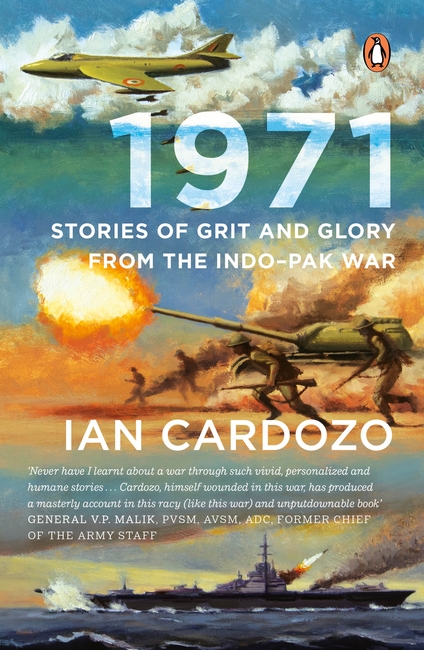
An under-strength Gorkha battalion undertakes the Indian Army’s first heliborne operation deep behind enemy lines, defeating a Pakistani force twenty times its strength. Fighters of the Indian Air force target the Government House in Dhaka in a daring air raid, forcing the Pakistani government in Dhaka to capitulate and surrender. Four battle casualties become close friends at the Artificial Limb Centre in Pune in the war’s aftermath.
In this collection of true stories, decorated war veteran Major General Ian Cardozo recounts what really happened during the 1971 Indo-Pak war, piecing together every story in vivid detail through interviews with survivors and their families. The book also seeks to commemorate the lives of those who were killed and wounded in this war, which took place fifty years ago.
From the tragic tale of the INS Khukri and its courageous captain, who went down with his ship, to how a battalion of the Gorkhas launched what we accept as the last khukri attack in modern military history, these stories reveal what went on in the minds of those who led their men into battle-on land, at sea and in the air.
Imprint: Ebury Press
Published: Jun/2021
ISBN: 9780143454557
Length : 304 Pages
MRP : ₹299.00
Yes, six months have passed since 2021 began. Under normal circumstances, a June mood-board would probably be filled with things like citrus fruit, travel plans, swimsuits, bright colours and pretty food. Much like Darwin theorised though, we evolve to take advantage of the resources we have. The one thing we’ve always got is our books. […]
